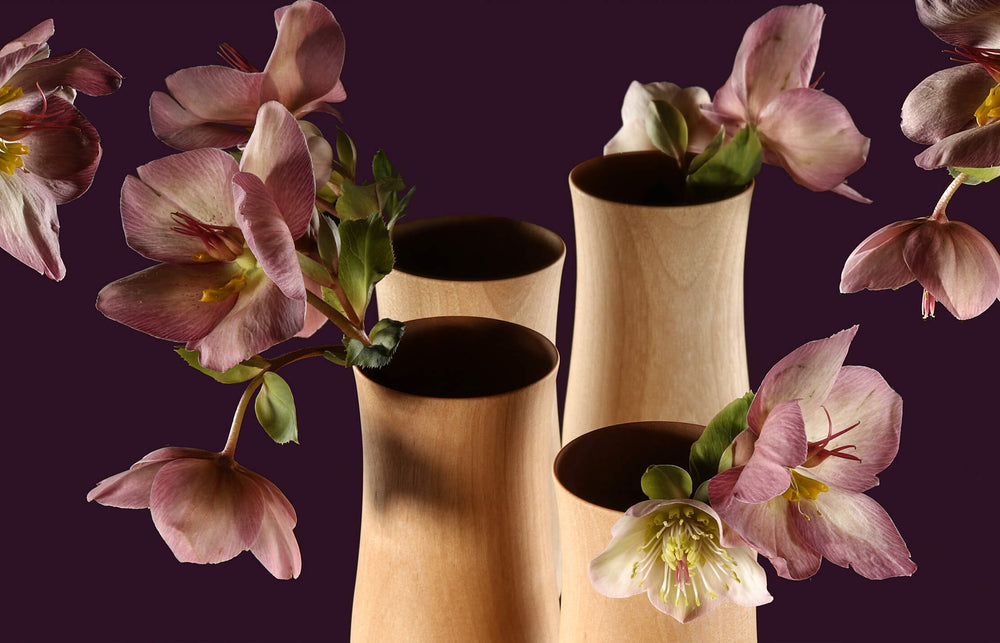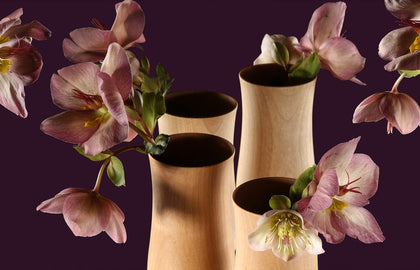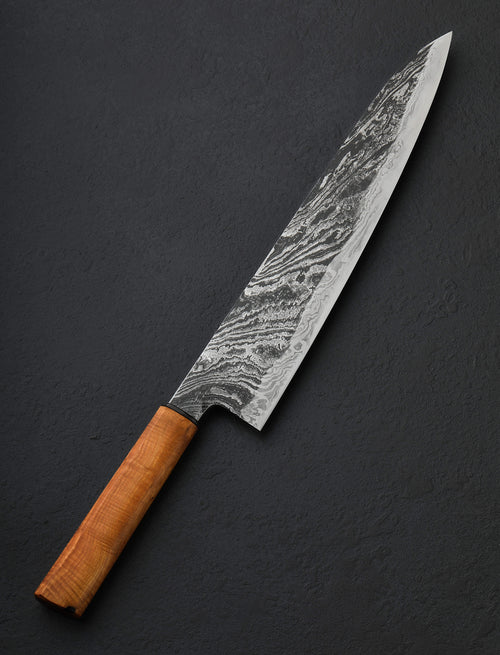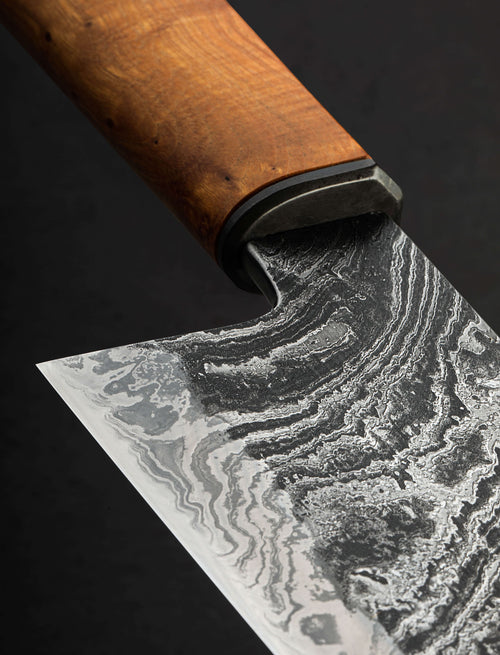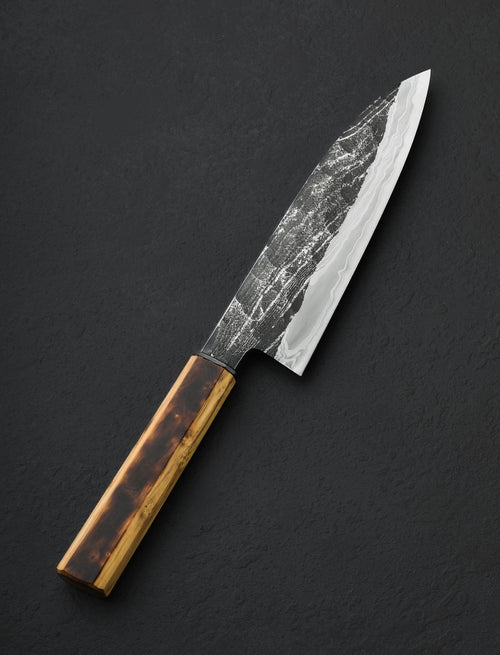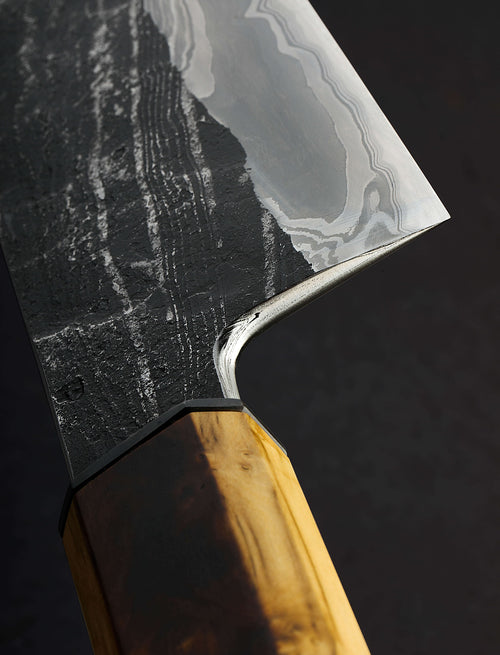"Through memories, feelings, and consciousness, kitchen knives can turn familiar moments into something unique.”
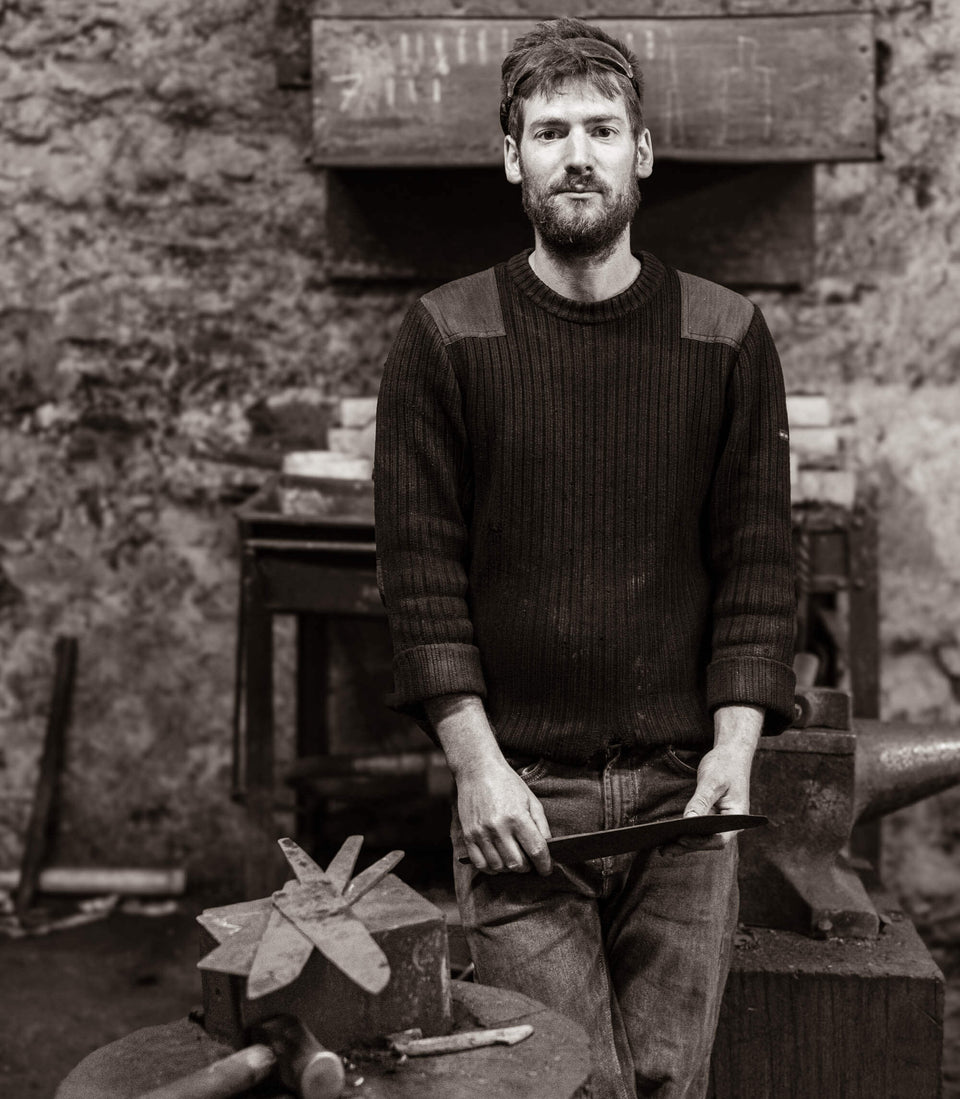
Meet The Makers
Milan Gravier - France
After studying philosophy and before his first foray into blacksmithing, Milan Gravier spent what would be a transformative period working the land in a special way: goat keeping, vegetable gardening, house building, and performing the rest of the activities required of a farm which operates without electricity, without machines, using only hand tools and traditional methods. The connection to the Earth, to the basic needs of humanity, to the sources of the foods which sustain us, gave Milan a new perspective.
Growing up in the French countryside, watching his parents perform demanding physical work day in and day out, Milan was at first determined to study hard and make a living not with his hands but with his intellect. As fascinated as he was with the worlds of history, economics, and philosophy, he soon acknowledged within himself that the meaning in life he searched for would come only from another place, a place closer to home. A love of ecology and of the ability to grow the food and plants on which humans thrive led Milan first to the farm, and then, to the tools and objects used to make it all possible. The incredible vegetables he helped harvest demanded equally as remarkable utensils with which to prepare the raw ingredients for consumption, and with a visceral attraction to the fire and power afforded a practitioner of blacksmithing, the flame was lit.
It was 2011 when Milan began making knives and blacksmithing. Learning the craft through the teachings of more experienced makers and the reading of every word he could find on the topic of Japanese knife making, Milan’s skills blossomed. By 2020 his sole focus was culinary knifemaking. Driven by a passion for the complex and boundless process of creating a beautiful object destined for utility - the chef’s knife – Milan’s focus as a craftsperson is to “discover and master the knowledge and knowhow of this traditional craft.”
At his studio in Tarn in southern France, Milan forges and forge-welds damascus, san mai, and honyaki steels with a wooden charcoal forge. Using traditional techniques, he employs simple, clean, high-quality ingredients such as 135Cr3 high-carbon steel and reclaimed wrought iron to produce one-of-a-kind kitchen knives with function and performance at the forefront. All bevels and edges are finished with whetstones, including natural Japanese stones, to produce the beautiful appearances and superb geometry that are at the core of his approach to producing world-class culinary tools. These meticulous surface finishes are a way for Milan to reveal the nuances of each material, element, and transition within a blade. The stones, first and foremost, complete the exceptional geometry and shape of primary and secondary bevels, the final steps which complement the initial forging, heat treatment, and straightening processes. At the same time, the use of the stones reveals the nature of each of these aforementioned processes, projecting on the eyes the darkness of the soft iron, the banding and textures within wrought iron, and the hard, bright steel in which the discerning viewer can even witness the material’s crystalline structure. From the old iron to hardwoods from surrounding areas, Milan uses locally sourced materials wherever possible, and each blade he completes delivers to its new owner a little piece of the countryside in which Milan works.











